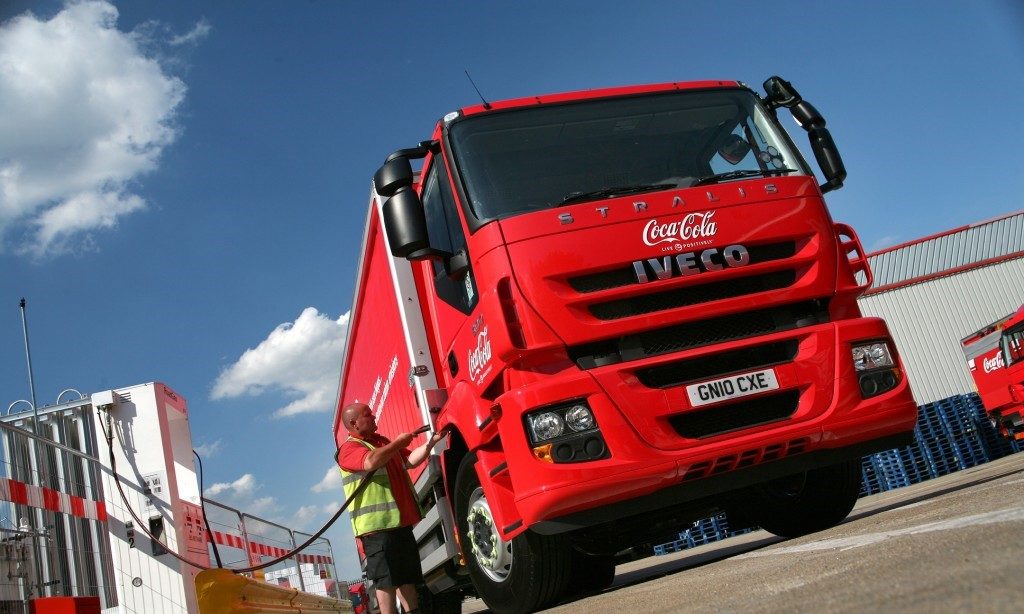
Coca Cola Heavy Goods Vehicle Trial
Case Study
The Challenge
Driven by desire to produce a reduction in fleet emissions, Coca-Cola Enterprises (CCE) contracted us to evaluate and compare the emissions, fuel consumption, economics, reliability and operability of a 26-tonne gas vehicle with that of an equivalent diesel vehicle.
The Development
Both trial vehicles; one operating solely on biomethane gas, and one diesel powered – were highly comparable. Both were new registrations at trial commencement and met enhanced environmentally friendly vehicle emission standards.
A temporary gas vehicle refuelling infrastructure was installed at the CCE depot in Enfield, UK where the trial vehicles operated from.
Vehicle activity data from the Enfield depot was logged via an onboard telemetry and a drive cycle was produced. Testing vehicles over the CCE drive cycle in an emissions testing facility allowed air quality performance, as well as tailpipe CO2 and fuel consumption to be measured in a controlled and repeatable environment.
The Results
This gas vehicle operation reduced NOX and particle matter emissions by over 85%.
The installation of the temporary filling station achieved over 50% saving in well-to-wheel GHG emissions. However, installing a permanent infrastructure would increase the efficiency, thus increasing the saving by at least 60%.
Drivers rated the overall performance of the gas vehicle higher than the diesel, with drivers being most impressed with the gas trucks acceleration, transmission and refuelling aspects.
Following the success of the trial, Coca-Cola Enterprises adopted 15 biomethane-powered trucks, as well as installing a gas refuelling station.